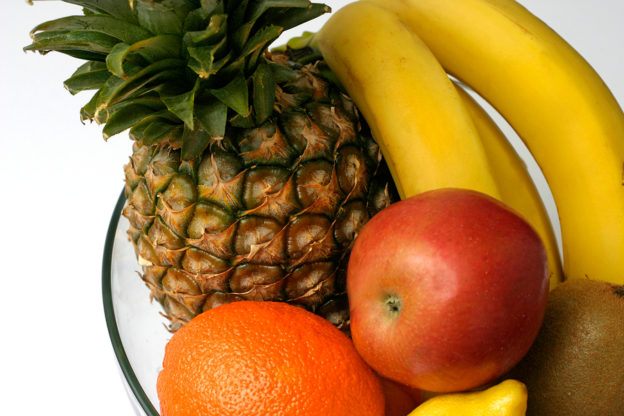By David Blyweiss, M.D., Advanced Natural Wellness
September 9, 2016
Sometimes I find that a patient takes my advice on sugar restriction a little too far. They don’t just cut unhealthy sugars from their diet. They also become concerned about the fructose found in fruit, and start limiting their fruit intake.
I can understand the confusion. Everything you read these days tells you that fructose will make you fat and kill you almost as fast as a speeding bullet.
Yes and no.
It’s the refined sugars – like those in white sugar and high fructose corn syrup – that are linked to diabetes, heart disease, obesity, cancer and other chronic diseases associated with aging.
These processed sugars are void of nutrients. And when you eat them, they break down so rapidly that they trigger a big spike in blood sugar and insulin. This is terrible for your health.
However, sugars found in their natural state are a completely different story.
When you bite into a fresh fruit, you’re eating a synergistically nutritious whole food. All of the elements – the vitamins, minerals, water, antioxidants and other nutrients – work together to provide a profound health benefit.
Plus, fruit comes with all-important fiber. This slows down digestion of the sugar so that you don’t end up getting wildly high spikes of blood glucose and insulin.
With this in mind, it’s clear that eating a piece of cake and biting into a piece of fruit will generate completely different responses in your body.
But is it safe for everyone to eat more fruit?
Daily Fruit Intake Cuts the Risk of Diabetes
Like vegetables, fruit is a very important part of a balanced diet. However many folks, diabetics in particular, are under the belief that when a fruit tastes too sweet, it shouldn’t be eaten.
The World's Quickest Solution for Ending Prostate and Urinary Misery
This has recently been revealed to be one of the only real breakthroughs in prostate health.
The seeds of a strange fruit (sometimes called "Chinese Apples") hold powerful phytonutrients that are a revolution in prostate health.
In fact, UCLA and Veterans Administration research have now proved this to be true.
Not only that, but it may be the worlds quickest solution for ending prostate misery.
Simply stated, these phytonutrients represent a huge step beyond beta sitosterol, saw palmetto, and other phytosterols alone.
Simply click HERE if you want to have fast prostate relief...restful, uninterrupted sleep...no more constant "urges to go"...enhanced virility...and optimal prostate support for life.
While it’s true that some fruits do contain more sugar than others, it doesn’t mean you can’t enjoy them – even if you’re diabetic.
In fact, type 2 diabetics who eat more than two servings of fruit a day have HgB A1c levels that are practically identical to those who eat less than two servings. (The HgBA1c is a simple blood test that shows your average blood sugar levels over the previous three-four months. We doctors use it as a screening tool for diabetes.)
Additionally, higher fruit consumption is actually linked to a lower risk of developing type 2 diabetes.
This is especially true when it comes to blueberries, grapes and apples. As little as two servings a week of these types of fruit can cut your risk of diabetes by as much as 23% compared to eating less than a serving a month.
Sadly, about two-thirds of Americans eat fruit less than twice a day. And there’s no reason for that. There’s nothing wrong with eating it three or four times a day as part of a well-rounded diet.
Now, before signing off, I have just one word of caution.
Drinking Fruit Juice is not the Same Thing as Eating a Piece of Fruit
Whether you make fruit juice yourself or buy it at the store, the majority of them are practically devoid of fiber. All of the fibrous parts like the pith, peel and seeds are left behind. And without that fiber, you’re guaranteed to experience a large blood sugar and insulin response.
In other words, drinking fruit juice can be as bad for you as drinking a soda. As a matter of fact, as little as one serving of fruit juice daily can actually increase your chances of becoming diabetic by as much as 21%.
So skip the fruit juice. Pass up the sweets and go straight for the good stuff… a nice, plump, organic piece of fruit. The greater the variety, the more health benefits you’ll achieve.
SOURCES:
Christensen AS, et al. Effect of fruit restriction on glycemic control in patients with type 2 diabetes–a randomized trial. Nutr J. 2013 Mar 5;12:29.
Muraki I, et al. Fruit consumption and risk of type 2 diabetes: results from three prospective longitudinal cohort studies. BMJ. 2013 Aug 28;347:f5001.







